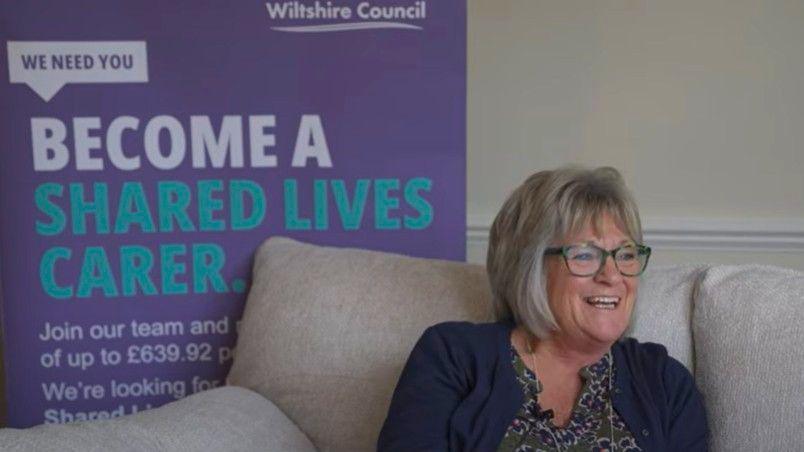'People underestimate us because of our disabilities'
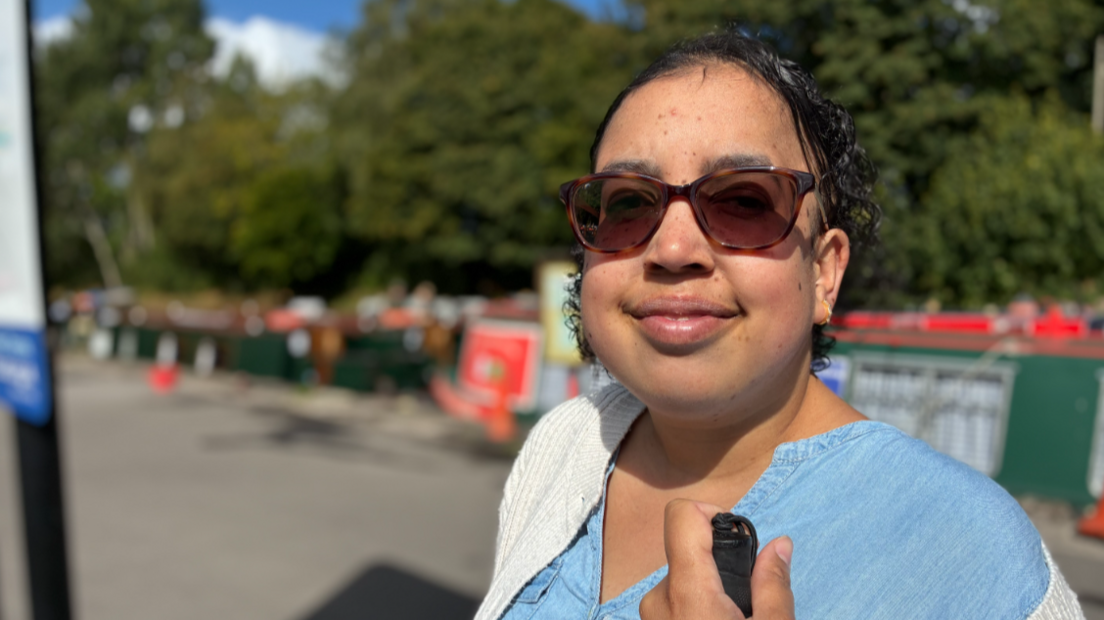
Renee Keill is registered blind and said people are often surprised she lives alone
- Published
When Renee Keill was a toddler, doctors warned she was unlikely to make it to adulthood.
"They said I wouldn't last until I was five years old. Now I'm 26," she said.
"I've come from a really bad place in the hospital to where I am now. I had a brain tumour, radiotherapy, chemotherapy as well as a lot of operations and surgeries.
"When I was 13, I was having epileptic seizures - my body would turn off and it would take me five minutes to come back to life."
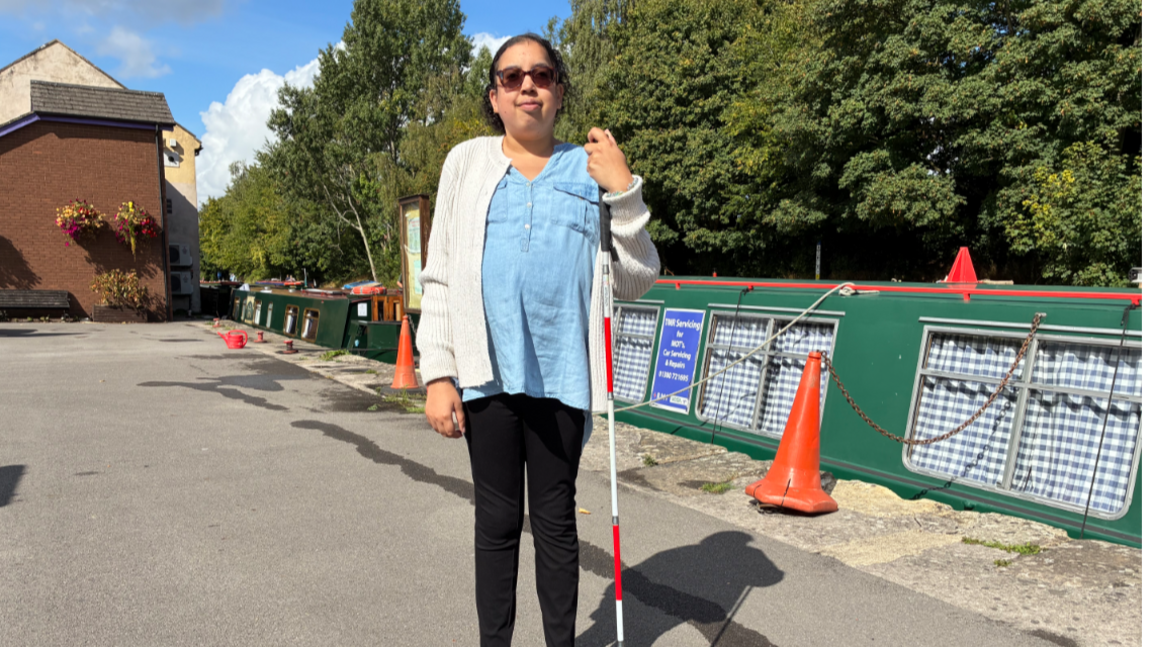
Renee dreams of becoming an artist or a writer
Renee now lives independently in Devizes, Wiltshire, with the support of a personal assistant.
Registered blind, due to tunnel vision in her left eye, she uses a cane to get around the town and said people were sometimes surprised when she revealed she lived alone.
"People underestimate me. They think I can't do some things. But I can be just like 'normal' people," she said.
"At the moment, my current goal is to work on my house. I've put some pictures of my own drawings on the wall and I feel proud of that."
Renee said support from Devizes-based Wiltshire Centre for Independent Living (CIL) had given her inspiration for the years to come.
The charity was founded in 2005 to help disabled people "live the life of their choice" and supports about 2,000 people a year.
Renee said: "The group has helped me think about my accomplishments and goals in life, and I want my goals to be a bit bigger each time. I would love a job of some kind. My dream would be to become an author or an artist."
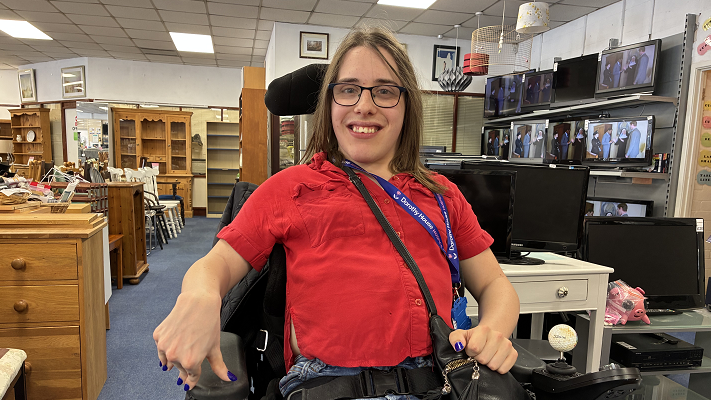
Freya Viles hopes to educate people on what it is really like to be disabled
Freya Viles, from Calne, agrees with Renee that there is a misconception around what young people with disabilities can achieve - both in their personal and professional life.
Freya, 24, who has cerebral palsy and uses a wheelchair, works as a manager at the Dorothy House Furniture Shop in Chippenham.
"Quite often it is assumed I might be paralysed or something like that," she said.
"I'd rather people come and ask me how best to work with me rather than making assumptions of my abilities."
She said most of that misconception often "comes down to a lack of education".
"People can come across as a bit patronising and think they have to act a certain way when they meet a disabled person," she added.
"But, just treat us how you'd treat any other person you come into contact with."
Freya, who says she has also faced stigma due to the fact she is trans, said she was now "really passionate" about educating people to become more inclusive, "so that future generations don't have to go through what I have gone through".
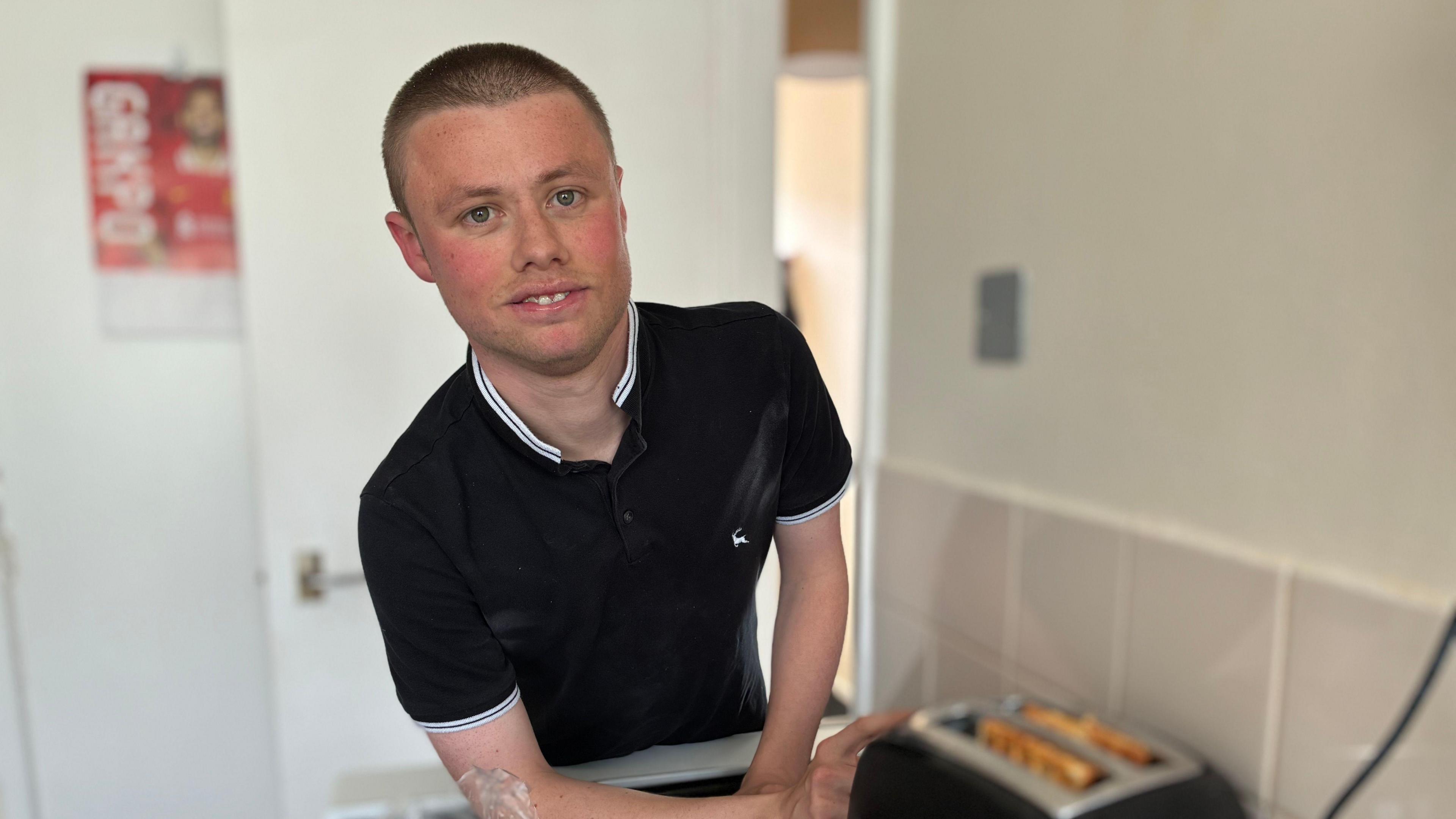
Nathan Huntley said he had gained confidence in his cooking abilities since living alone
Over in Chippenham, Nathan Huntley is working with Wiltshire Council and met with its leaders to ensure the voices of disabled people and those with special educational needs and disabilities (SEND) are heard.
"Listen to young people with SEND," he urged. "They have the knowledge and information and know-how."
Nathan, 24, is non-verbal and uses a mobile phone to communicate. He types out his responses to questions, which the device then vocalises.
"I find it really frustrating that people presume I have a learning disability," he said.
"I had a recent experience where I went to a club for adults with disabilities and [people there] were talking to each person like they were a baby.
"I am no communication expert, but surely you should get to know each person and how they communicate before you speak to them in a certain way."
Nathan moved out of his mother's home two years ago and currently lives alone. Since then, he said he had learned vital skills, including cooking for himself.
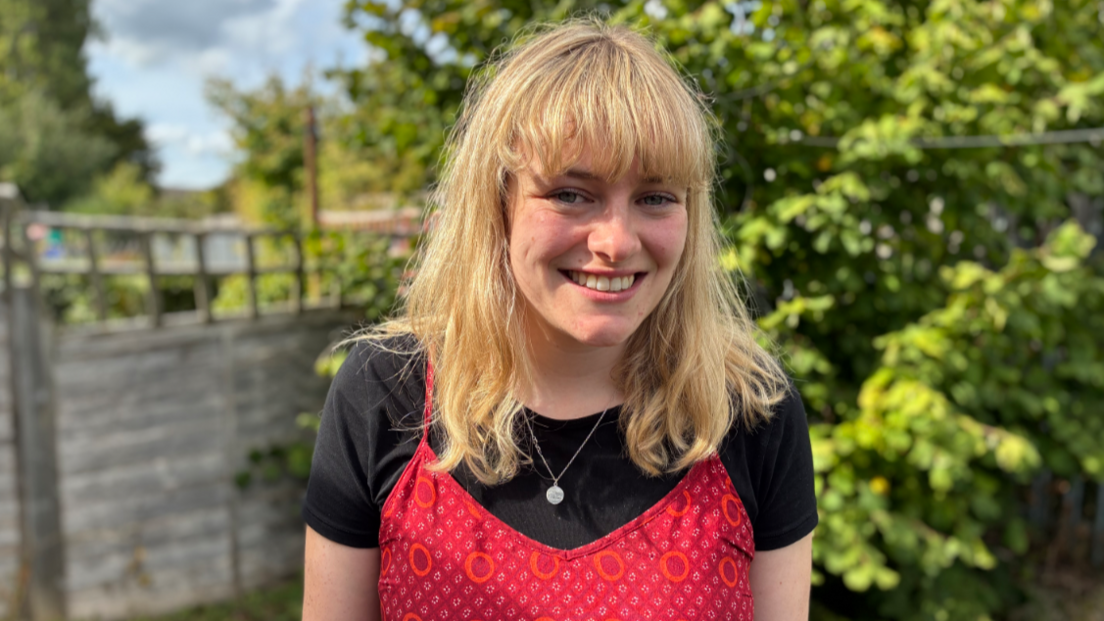
Rachael said young people supported by the Wiltshire Centre for Independent Living grow in confidence
Nathan has, like Renee and Freya, been supported by Wiltshire CIL.
In 2023-2024, the charity supported 337 people every month as part of its mission to see every disabled person in Wiltshire have "choice and control to live independent lives".
The charity's Rachael Hanwell said people like Nathan were helping to break down barriers when it came to society's perceptions of disabled people.
She said: "When we first met Nathan, he told us he wanted to move out, get a job and find a girlfriend - [he's] no different to any other young person wanting to move on and become more independent.
"There's a general lack of understanding that [disabled people] are not ambitious and don't want to be involved in decisions which affect them.
"People like Nathan prove they couldn't be more wrong."
Get in touch
Tell us which stories we should cover in Wiltshire
Follow BBC Wiltshire on Facebook, external, X, external and Instagram, external. Send your story ideas to us on email or via WhatsApp on 0800 313 4630.
- Published13 June
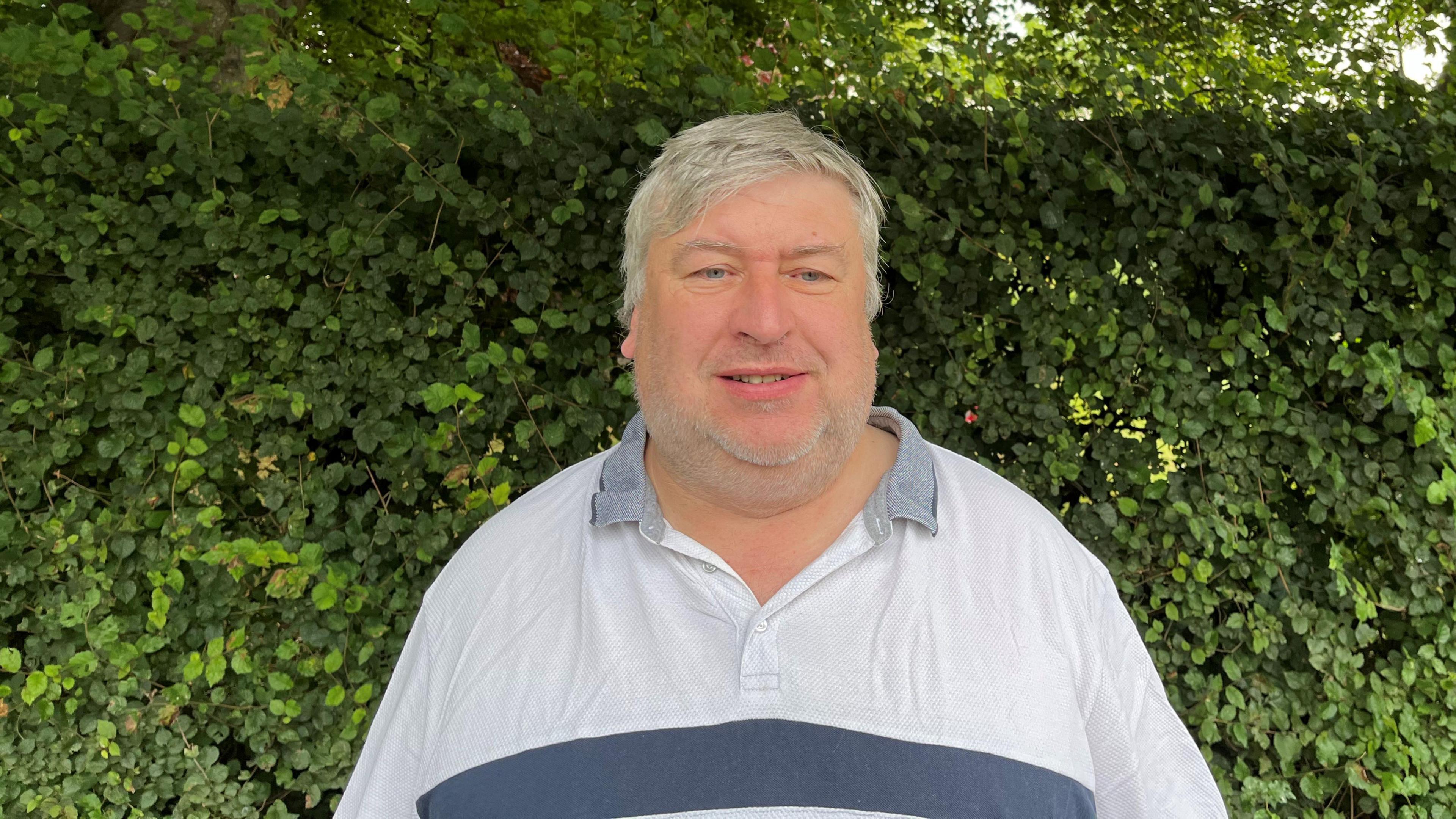
- Published26 June
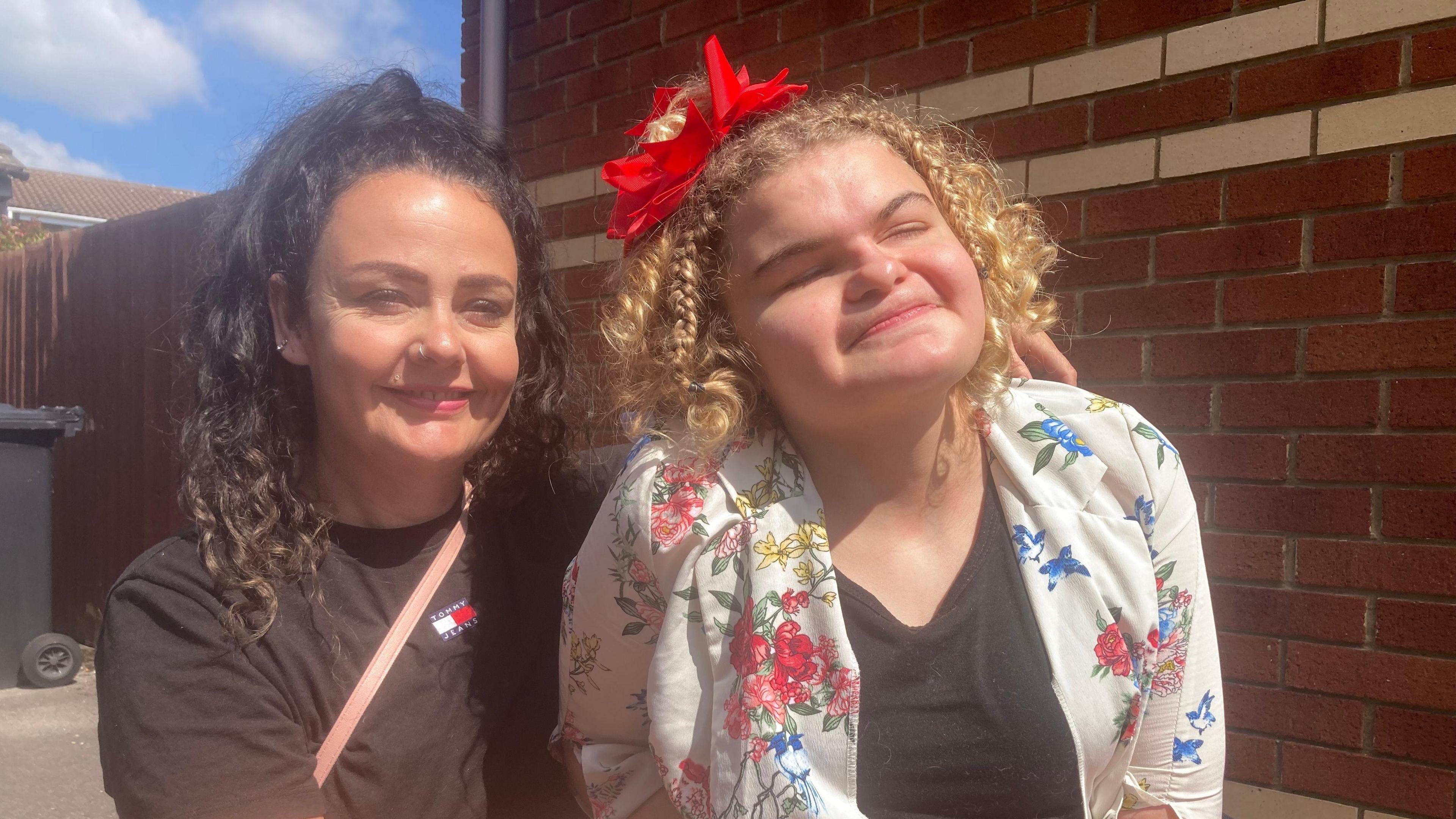
- Published4 April 2023

- Published22 March
